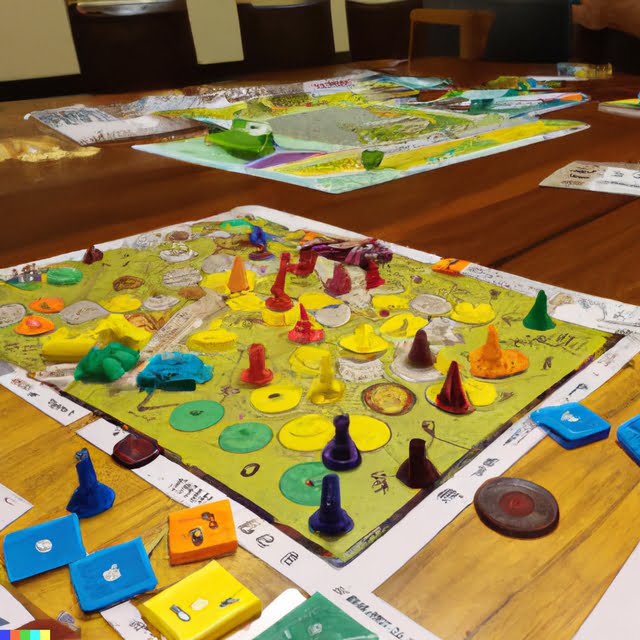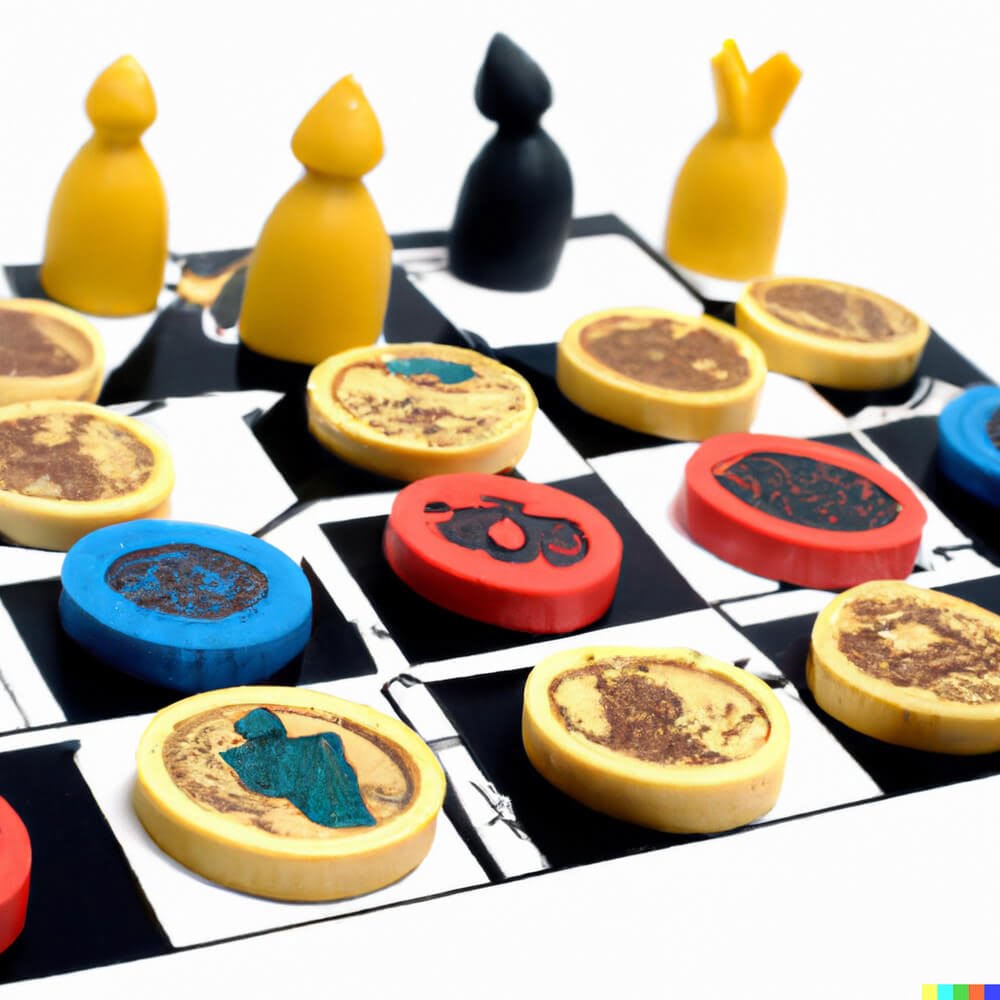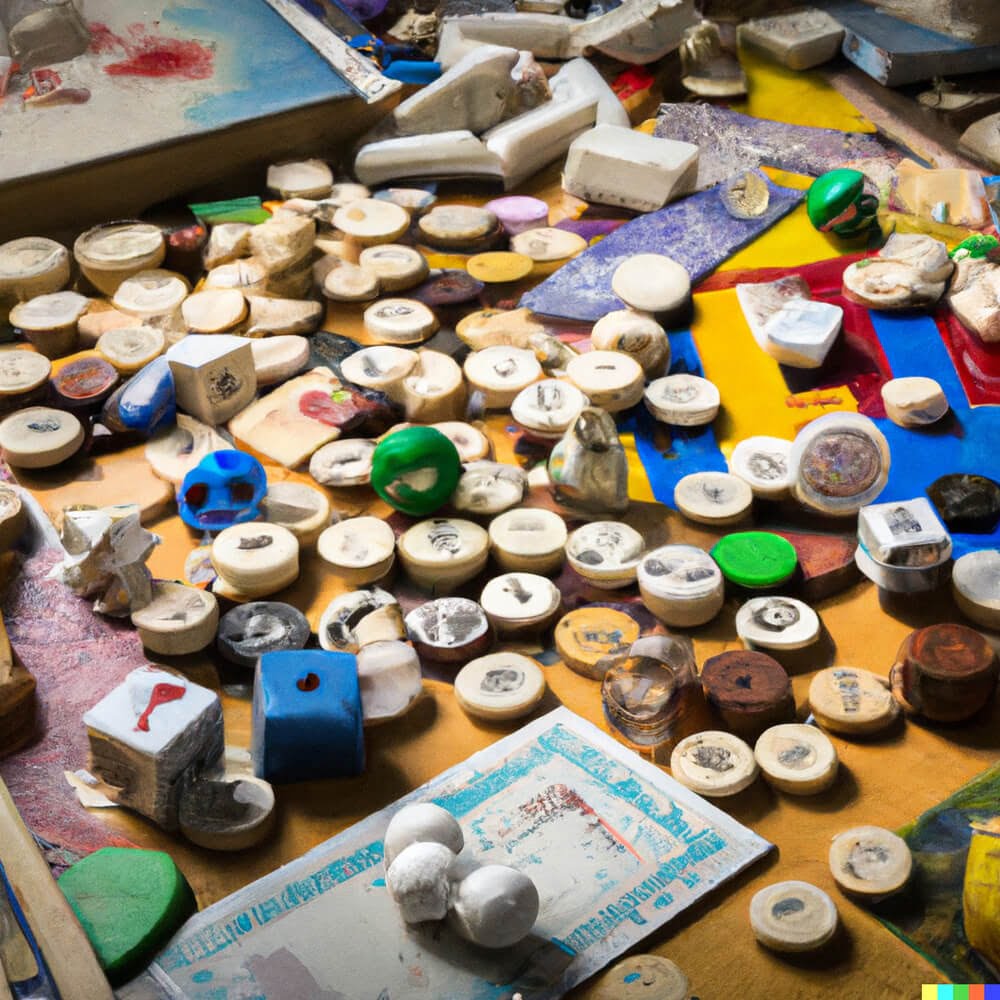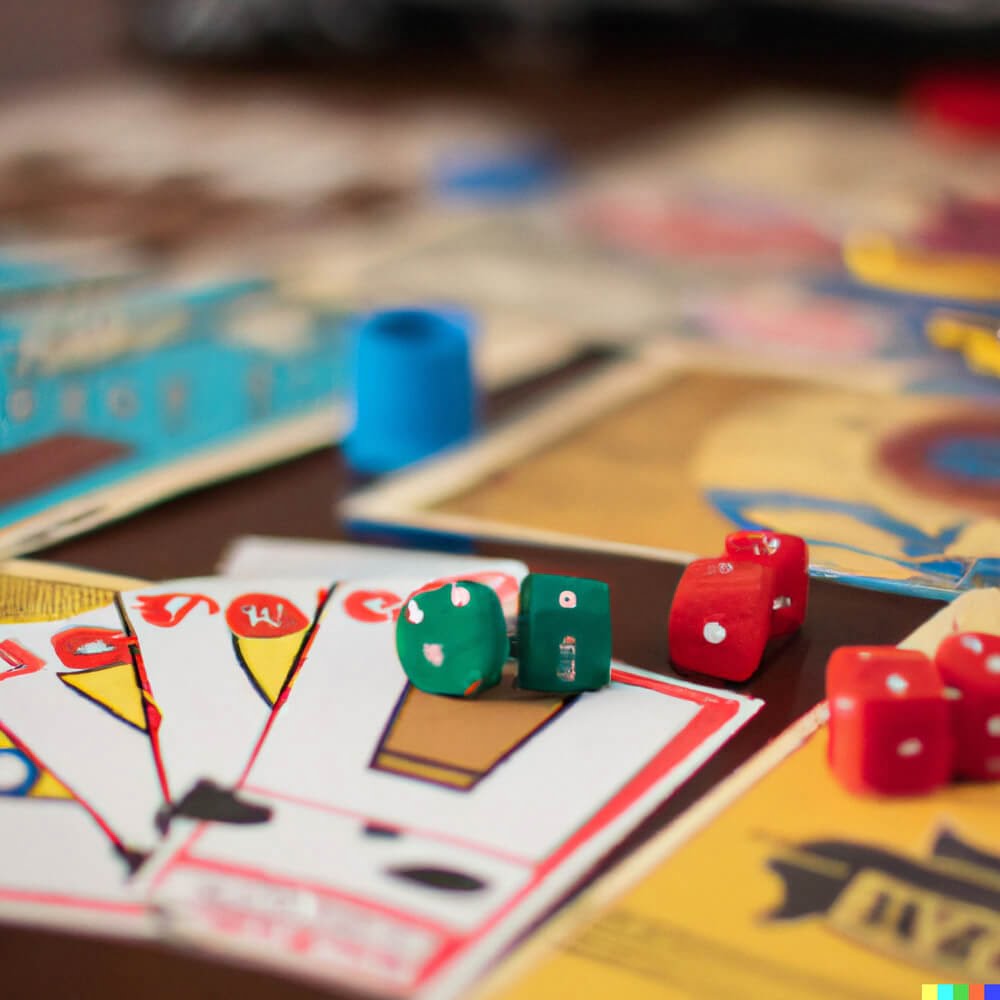Introduction
Good board game names are memorable, engaging and bring curiosity to players upon first glance. Fortunately, there are many ways that you can come up with a creative and unique name for your board game. Here are some tips on how to make up a board game name:
1. Use Word Combinations: By combining two, unrelated words together, you can create an unexpected phrase or term that will stick in the minds of the players. For example, you could combine the words “pirate” and “adventure” to create “Pirateventure.”
2. Brainstorm with Friends & Family: Have close friends or family sit down with you and engage in a fun brainstorming session to come up with potential names based on the theme or idea of your board game. This is a great way to obtain helpful feedback as well as bounce off ideas with one another.
3. Look Up Synonyms: A great tool for finding innovative terms related to your concept is using a thesaurus, which provides plenty of synonyms for common words associated with games (e.g., play = gambol, rollick).
4. Research Popular Board Games: Looking at what other successful games have been named in the past can provide you with inspirational source material for crafting your own game title ” from specific themes like fantasy or storytelling to incorporating puns into titles (e.g., Pandemic Legacy: Season 1)
5. Keep It Simple – Yet Impactful: Short phrases tend to be more digestible than longer ones; simpler titles leave room for understanding and don’t require multiple reads or efforts toward comprehension. Be sure not go too overboard when it comes to font size or style ” after all, keep in mind that readability is key!
Making the perfect board game title requires imagination coupled with practicality ” catchy names help spark interest in potential buyers as well as encourage them to give it a try! With these tips in mind, feel free to explore different methods to come up with an effective name that’ll separate it from competing products while still remaining marketable & readily recognizable amongst gamers!
Theming Your Board Game Name
Creating a board game name that is memorable and exciting requires some thought. The first step is to think about the theme of your board game. Is it a strategic game? Funny? A trivia game? Fantasy-based? Are there any historical, popular culture, geographic, or scientific elements that could tie into the title of your game? If so, consider using them in your title. Once you have determined a theme for your game, you can use those elements to brainstorm potential names. For instance, if you’re creating a strategy-based game involving Arthurian legend and kingdom building, try constructing titles like “The Knights of Camelot” or “Crowns of Avalon” to capture both the medieval historical element and the power associated with achieving victory in a strategic setting.
You can also come up with words that create double meanings associated with particular aspects of the game. For example, if you’re making a wilderness-themed conquest game”where teams traverse across rocky terrain to find certain objects”you might craft interesting words such as “terrapin trek” or “outpropel” that connote searching for something in an unpredictable environment. If it’s mystery-driven and set during Victorian times, perhaps “Enigma Express” could be used to illustrate not only traveling from one location to another (express), but also solving puzzles along the way (enigma). Lastly, don’t forget to consider alliteration when creating names; this helps make titles more memorable and impactful. Try combining words together like “Spy Siege” or “Scavenger Showdown”.
Securing Your Board Game Name
When creating a board game, it is important to protect your idea with Intellectual Property (IP). IP encompasses creative works that have been protected by law, such as copyrights and trademarks. Before publicly releasing a product, you should consider what kind of IP protection best fits your needs and legal requirements. For example, when creating a board game name, you may wish to pursue trademark registration to ensure the exclusive right to that name”especially if the name could be considered “significantly distinctive.” To secure this right, you must register the name with your local or national patent and trademark office.
The process of registering a board game name will involve accurately filling in an application form which outlines information about the origin of the catchphrase or expression being registered as well as how it will be used in relation to the game. A hefty fee may also need to be paid depending on your country’s regulations. Once accepted, registration lasts for 10-15 years and can usually be renewed at minimal cost upon its expiration date. It should also be noted that with any IP rights comes responsibility; upholding expectations of non-compete clauses and maintaining clear rules on its commercial use are just as vital for keeping its ownership safe legally.
Ideas for Crafting Your Board Game Name
1. Consider the theme of your board game. Your board game name should reflect whatever theme you’ve chosen for your game. For instance, if it’s a space-themed game, look for words related to that genre. Possible titles could be “Star Chaser” or “Reach for the Cosmos”.
2. Try to think outside the box when it comes to making up your game’s title. Think about playing on words or coming up with puns that relate to the theme of your board game. For example, you could use a pun such as ‘Cotton Picking Monopoly’ if drawing inspiration from popular games or ‘In a Pickle’ if creating a competitive word-based strategy game.
3. Make sure that the board game’s title is easy to remember and pronounce. You don’t want potential customers having difficulty saying or typing in the name of your game when they’re searching online for it! Keep the title simple and keep it descriptive enough so people can understand what kind of game they’re getting without having to read any additional information regarding its gameplay and components.
4. Choose words that evoke emotion in players and make them want to try out your board game. Words such as adventure, exploration, discovery, strategy and challenge help indicate that players are going on something exciting when starting their playthrough of your creation!
Wordplay
One way to create an interesting board game name is to use wordplay. With wordplay, you can incorporate clever irony and imagery into a unique game title that conveys the theme of the game. For example, if the game focuses around adventure, you could use words like “Explorers” and “Trekking” to suggest an exciting journey. You could also add some humor by making a pun out of two words with similar sounds, such as “Rumble in the Juncture” (a play on “rumble in the jungle”). Word play can also be used to describe characters, places or scenarios related to the game’s narrative. Come up with adjectives that quickly convey your ideas such as brave, adventurous, powerful and whimsical. Trying forming alliterations from these adjectives and base your title around them ” for instance: “Leap And Play The Brave Adventure Games” . Finally, don’t be afraid to think outside the box ” this is what sets your board game name apart and piques interest!
Interpreting Trends
When figuring out a board game name, it can be beneficial to draw on references from popular culture. Keeping up with trends and the latest releases can provide inspiration for your board game name. Pay attention to popular shows, movies, books, and music that are currently in vogue – some ideas might come just by reading titles! Some examples could be incorporating phrases from songs or a book series title into your board game name.
Another option is to take classic quotes or phrases such as ‘Life is a journey’, ‘The unexpected always happens’ or ‘Bigger than life’ and weave them into your board game’s name. This manner of creating names builds off of familiar sources but puts them into an exciting new context.
Additionally, you can use puns for clever and whimsical play on words that evoke laughter and intrigue among players. Finally, consider drawing upon cultural moments of the news cycle; anything from public debates to long-standing conversations about specific topics can be used as points of reference when crafting the perfect board game title!
Localization Strategies
Board games are a great way to have fun with friends and family, so when creating one, it’s important to make sure the board game name is something that can be understood across different cultures. This is especially important if you plan on releasing your board game in multiple languages or countries. Here are some strategies to ensure your board game name can be readily understood:
1. Choose words that are common across cultures: A simple way to make sure your board game name isn’t lost in translation is by selecting words or phrases that have almost the same meaning in various languages. Examples might include ‘champion’, ‘adventure’, or ‘quest.’
2. Make sure pronunciation is relatively straightforward: As much as possible, try to pick a word that isn’t too difficult for people of different linguistic backgrounds to pronounce. Research the proper phonetics of what you choose before starting your localization efforts – otherwise it could lead to some interesting mispronunciations down the road!
3. Consider including relevant cultural elements: While keeping things simple is important, adding localizing touches can go a long way in showing potential players that you understand and appreciate their culture. Incorporating country/region specific images and symbols (such as food items or animals) gives players a more personal connection with your game.
4. Use culturally-relevant puns and turns of phrase: If relevant, using colloquialisms or puns from other countries can be an effective way to appeal to those audiences while also expressing some creative flair towards your own language. However, be careful not to accidentally offend anyone by considering any unintended connotations each phrase may have with various cultures!
Conformity Regulations
When creating a board game name, it is important to follow certain criteria in order to ensure that the name is appropriate for general public consumption. First, consider what message the game title would convey and be sure to stay away from language or images that might negatively impact how people perceive the game. Additionally, keep in mind any copyright laws or trademarks while coming up with your title. This can help to prevent someone from committing plagiarism or intellectual property infringement. Next, think of something memorable but not too obscure; a unique name should generate interest and capture people’s attention without detracting from the substance of the game itself. Last but not least, think about subtle cultural or industry themes you could incorporate into your board game name to differentiate it from others out there. This can be as simple as using a play on words or incorporating elements of popular media into its title. By following these tips, you will be able to create an appropriate, eye-catching board game name that stands out from the crowd!
Finalized Package
One of the essential steps to making a board game is creating its name. The perfect title for your game can tell players all about the theme, tone, and genre of your piece. It can also be very beneficial in catching the attention of potential buyers. If you are stuck on deciding what to name your board game, it doesn’t have to be complicated. Here are a few tips for coming up with a great name:
Start with brainstorming titles from different words that describe and relate to your game. Be creative and come up with as many terms and ideas for titles as possible.
You may even want to get input from friends, family, or colleagues who understand the concept behind your game; they may help you find an even more suitable title than one you would have thought of by yourself!
Once you have narrowed down some potential titles, research them online and make sure they fit any trademark or copyright regulations. This step is important in avoiding plagiarism and disputes over legal ownership of names between other companies.
Finally, craft a finalized package that consists of all necessary information such as spelling, punctuation etc relating to your chosen board game name so that when you are ready to get it manufactured, there won’t be any hidden surprises!
Conclusion
Creating a unique board game name can be a difficult task, but it is also an important step in designing your game. In order to find a name that not only captures the essence of your game, but also stands out from the competition, you need to consider how to combine key elements of your game concept into something original and memorable. This can involve playing with words and their associations to evoke different feelings and associations for players. It can also include exploring the possibilities beyond creative puns and wordplay, by taking inspiration from pop culture references or other sources. Ultimately, the most effective board game names are those that capture all of these elements in an interesting and informative manner ” giving players an insight into what they might expect from playing your game. By doing this you can ensure that your board game’s name establishes itself as something unique and special in its own right.

I love playing all kinds of games – from classics like Monopoly to modern favourites like Ticket to Ride.
I created this blog as a way to share my love of board games with others, and provide information on the latest releases and news in the industry.





